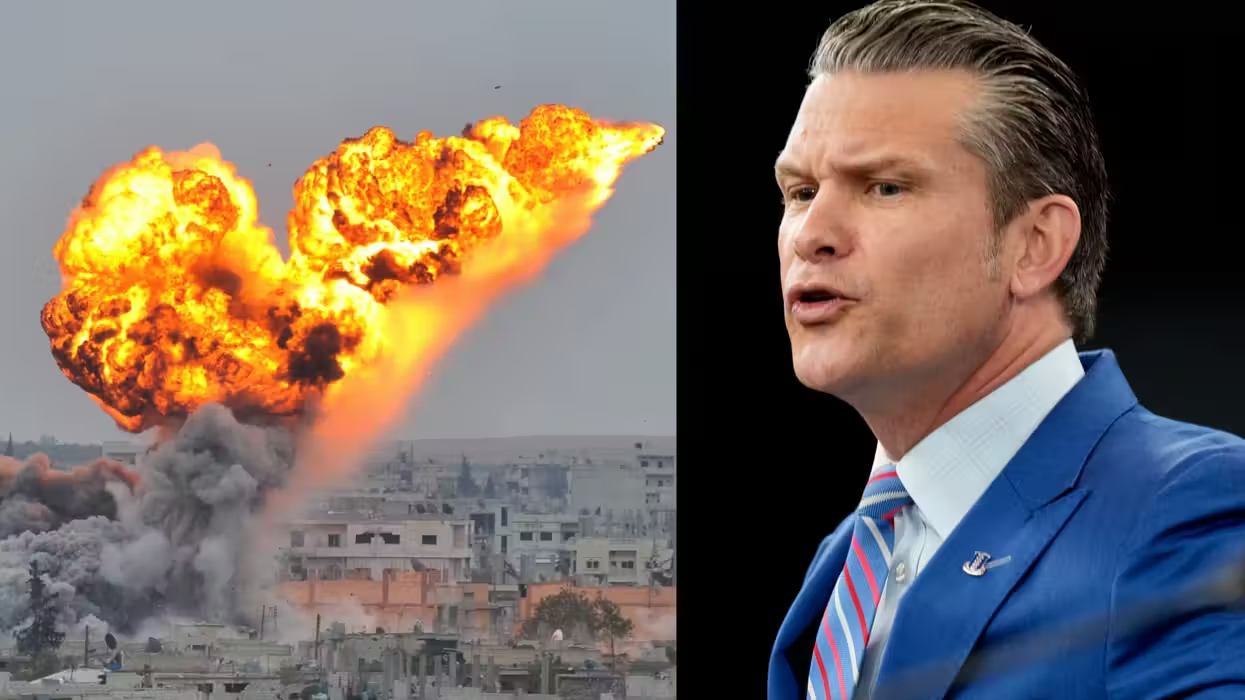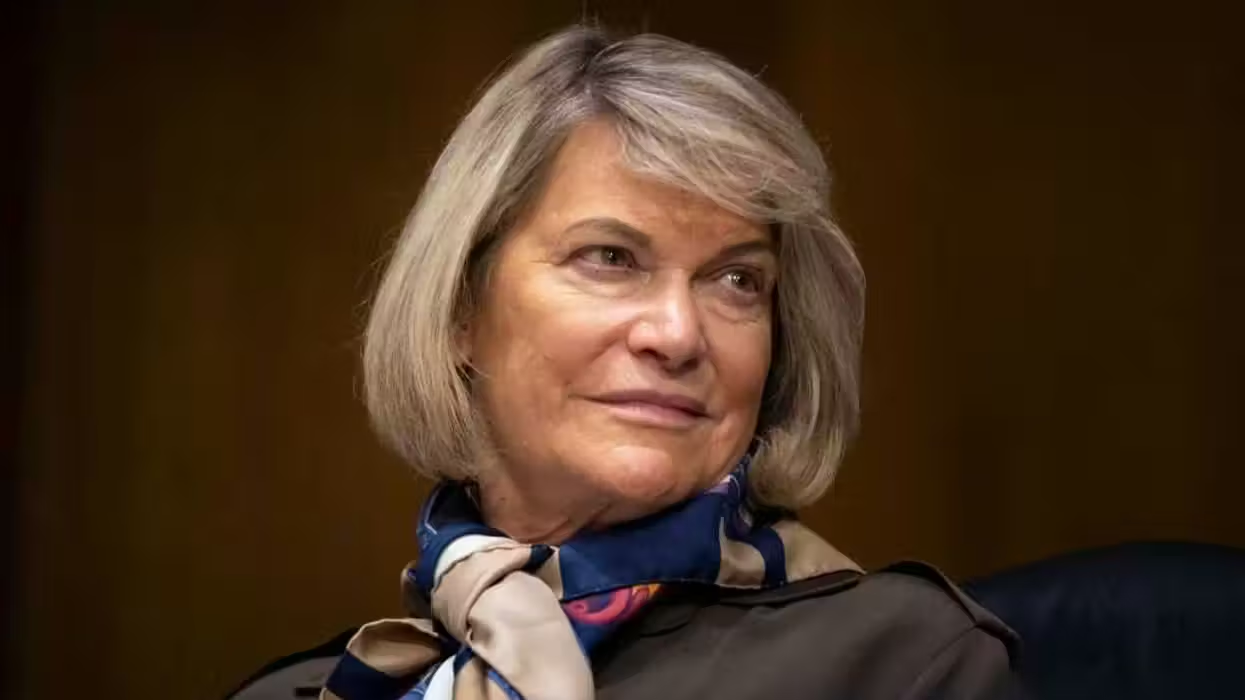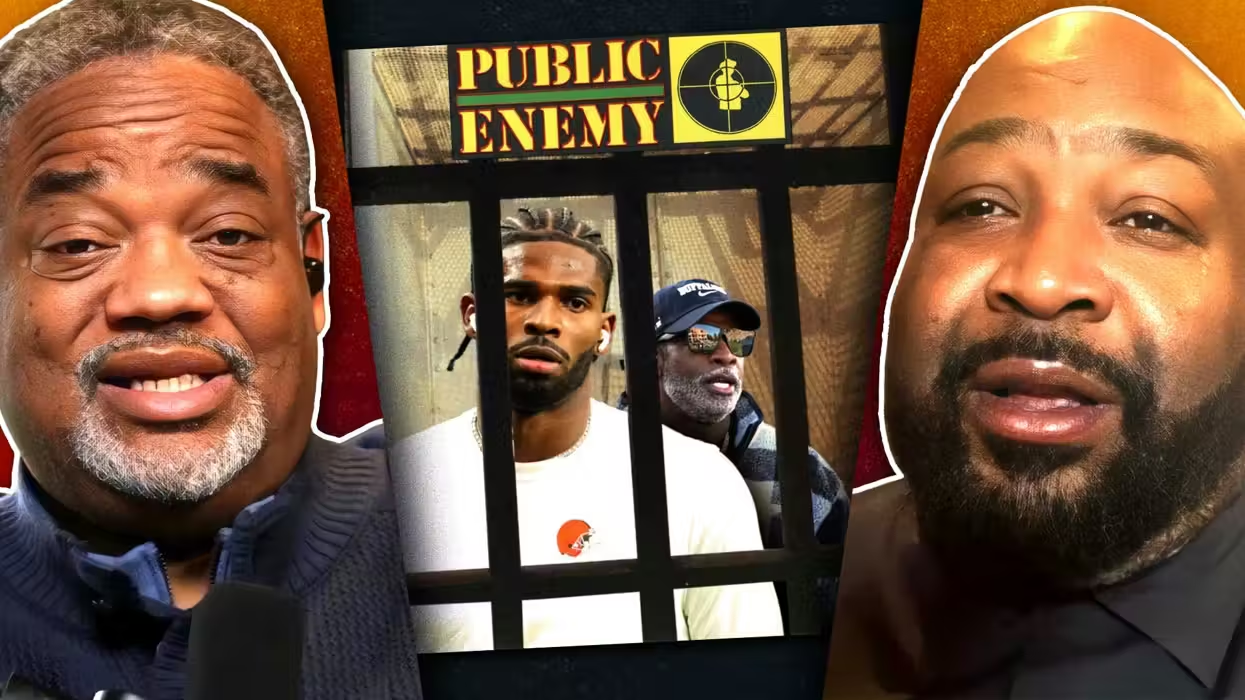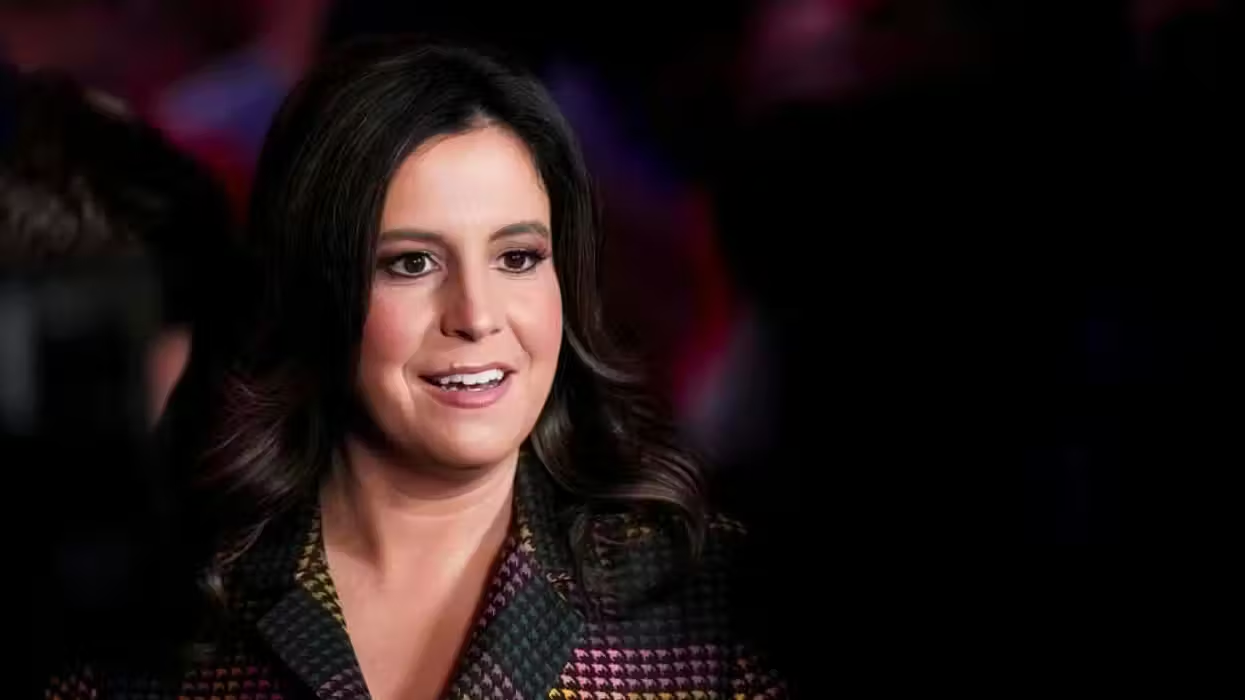© 2025 Blaze Media LLC. All rights reserved.
Editor’s note: The Blaze is featuring some guest posts to help our readers gain a deeper understanding of the situation in Egypt. This post, by an author who prefers no byline at this time, cautions readers to keep a close eye on Turkey as we watch developments in Egypt.
As Egypt changes leaders so does the center of power in the Middle East
As the eyes of the world center on the Middle East and the uncertainty of the region continues to threaten the stability of governments and economic infrastructures, the stage is set for a “great” leader to rise to power.
History tells us he’s coming.
The foundation for regime change is often rooted in the rise of the lower-middle class and poor against an authoritarian rule. The stages are set for uprising when economic conditions are so severe those with nothing have nothing to lose.
Common sense tells us that boldness is more easily stirred in a man facing hunger and lack of resources for him and his family. In the midst of chaos, power is more easily seized – especially when the new leader can convince the masses that his vision will heal the pains of the people.
Even though freedom and democracy are said to be the core of the uprising in Egypt, the promise of a better life, (a job) trumps ideology even if it means replacing one dictator with another. Turmoil and chants of “change now” that echo in Egypt, Tunisia, Jordan and Bahrain set the stage for such transitions and new leadership.
When one looks at regime changes and the rise of powerful men throughout history it is worth examining the similarities and circumstances. When economic conditions cause the populace to march into the streets and are at the core of the revolution, the scenario gives rise to the opportunistic emerging leaders who will use chaos and desperation as a means to an ideological end.
Throughout history those who seize control of a nation usually don’t have hidden agendas. Their ideologies and beliefs are well documented. So when the winds of change blow there are typically few surprises
In 1917 the Russian Revolution lead to the overthrow of the Tsarist autocracy
Between 1914-1917, inflation had sent prices to four times their original levels. The farmers and factory workers were short of food and facing rising prices. Growing criticism of the government and royal family led to the rise of Vladimir Lenin and eventually Joseph Stalin.
In 1902 Lenin expressed his ideas in his book What is to Be Done? He wrote of government's seizing of land from its owners and redistributing it to the peasants, and the nationalization (putting under central governmental control) of banks and industry.
He was a member of the Russian Social-Democratic Workers party, and a Russian Marxist.
1930-33 Adolf Hitler rises to power
Hitler built support mainly from the lower middle class and the peasantry in Germany to rise from chancellor to dictator. Even though he was anti-Marxist, in order to gain power, Hitler directed an alliance between the Nazis and Communists. Taking power in the middle of an economic depression he established the Labor Service to provide jobs for young workers, began expansion of government-sponsored defense spending, and blamed economic unrest primarily on the Jews.
While he was in prison, Hitler organized his ideas into a book, Mein Kampf ("My Struggle"). As chancellor of Germany he waged war on democracy and took action to limit the rights and freedoms of the German people.
The Cuban Revolution
U.S.-backed Cuban dictator Fulgencio Batista ruled a corrupt and repressive regime where he systematically profited from the exploitation of Cuba's commercial interests. Tight economic regulation and an increasing tax burden lead to high rates of unemployment and stagnant growth. In 1959 Batista was overthrown by revolutionary forces lead by Fidel Castro and Ernesto “Che” Guevara.
Che Guevara called himself a Marxist-Leninist. He was openly directing a Latin American revolution. As for Castro, in 1959 his political power drastically increased when he appointed himself the premier of the country.
The 1979 Iranian Revolution
During his reign Shah Mohammad Reza Pahlavi established himself as an indispensable ally of the West. In the mid-70s discontent began to spread as socioeconomic changes increased the gap between the ruling elite and the populace. Students and intellectuals began seeking democratic reforms that eventually led to the exile of the Shah and replaced his rule with an Islamic Republic under Ayatollah Khomeini.
After President Jimmy Carter refused to publically support the Shah the door was open for Khomeini to return to Iran. His vision was no secret. While in exile he gave a series of lectures on Islamic government. Khomeini laid out his ideas on governance. He said the laws of society should be made up only of the laws of God, which he referred to as Sharia. It would cover "all human affairs" and "provide instruction and establish norms" for every "topic" in "human life.”
Egypt and the Middle East Region in 2011
At the heart of the Egyptian protests are economics. David Wessel wrote in the Wall Street Journal (February 5), that the Arab World is facing an unemployment problem that is at the root of the conflict throughout the Middle East.
While political freedom and human rights are cited as major issues for the protesters in the streets the economic numbers don’t lie. According to the IMF, Egypt’s population is around 80 million and the country would need 9.4 million new jobs to employ those looking for work. More telling is the unemployment rate for those under the age of 25; it is a staggering 25.4%.
Yet if new jobs are to be created where will they come from?
Outside of agriculture the government has been the largest employer providing jobs for 70% of Egyptian workers. As the number of college graduates looking for work grows the system has been overwhelmed.
According to studies by the World Bank and the IMF, similar trends exist in Jordan, Lebanon, Syria and Tunisia where unemployment rates for young people (15-25) are consistently above 15%.
Egypt role in the Middle East has changed forever
Unrest in Egypt is reflective of regional complications in the most volatile areas on the globe. Most importantly, no mater who rises to power in Egypt the U.S. is losing a strong ally.
For more than 30 years Hosni Mubarak was a reliable partner in the region when it came to supporting U.S. interest. He is a man former Secretary of State, James Baker referred to as recently, “a damn good ally of the United States.”
Egypt was the island of stability for the West after the fall of Iran. Its geographic position makes it the gateway for Northern Africa, Europe and the Middle East. Its military strength was a deterrent for any nation threatening Israel, and as a Gulf War partner Mubarak was adamant in standing with the U.S.
Now with the fall of Mubarak, the eyes of the region turn toward Turkey’s Prime Minister Recep Tayyip Erdogan.
In the February 2, 2011 issue of Time Magazine, Erdogan is described as “arguably the most popular political leader in the Middle East today. He has publically supported the protesters in Egypt – just as many U.S. politicians have also done.
United States support and praise for Turkey and Erdogan is well documented.
Former President George W. Bush once said, “Turkey is a secular, Western-oriented state and a model for the Muslim world.”
President Barack Obama has said Turkey is a moderate Islamic country. U.S. Secretary of State Hillary Clinton has publically praised Turkey as a “democratic country with a secular constitution” during her visit to Ankara in March 2010.
However, Erdogan has rejected attempts to call Turkey the representative of moderate Islam. Speaking at Oxford Centre for Islamic Studies last year he said, “It is unacceptable for us to agree with such a definition. Turkey has never been a country to represent such a concept. Moreover, Islam cannot be classified as moderate or not.”
Who is Recep Tayyip Erdogan?
Erdogan has been the Prime Minister of Turkey since 2003. He is the leader of the ruling Justice and Development Party, or AKP. His climb to power began in the early 90s when he was elected the mayor of Istanbul. In September of 1994 his commitment to the teachings of Islam were clear. Erdogan said, “We will turn all our schools into Imam Hatips.” Shortly after that he publically announced, “Thank God Almighty, I am a servant of the Shariah.”
In an October 2006 in the Wall Street Journal, Michael Rubin warned Erdogan’s rhetoric might not be consistent with the West’s perception of Turkey’s leader. Rubin made it clear the Prime Ministers words reveal real concerns for the West.
Rubin noted that Erdogan speaks of democracy, tolerance and liberalism; his actions since in power reflect a steady assault on the system. In May 1996, Erdogan said, "Democracy is like a streetcar. You ride it until you arrive at your destination and then you step off."
A changing system and accepting Islam
Erdogan has pushed for schools and universities to welcome political Islam as a part of the curriculum. He has replaced nearly every member of the banking regulatory board with officials from the Islamic banking sector.
In 2009, Michael van der Galien of the publication, Right Across the Atlantic noted that Erdoğan said he expects Western societies to be more open to cooperation and dialogue with the East. “It should be known that adopting a malicious and offending approach toward the sensitive issues of Islamic world by hiding behind some democratic freedoms like freedom of speech and right of free publication is unacceptable,” Erdogan said.
An economic marvel
As noted earlier, economics are at the heart of most calls for government change or reform. In this area Erdogan has built an impressive economic resume. He has overseen impressive growth in his country. Last year Turkey was the second fasting-growing economy in the world next to China.
The Turkish economy is Europe’s fastest-growing sizable economy and will continue to be so in 2011. According to Organization for Economic Cooperation and Development forecasts, Turkey will be the second-largest economy in Europe by 2050.
Relations with Israel
In March 1949 Turkey became the first Muslim majority country to formalize diplomatic relations with the State of Israel. Israel maintains diplomatic missions in Ankara and Istanbul.
Israel has been a major arms supplier to the Turkish Military as both nations have openly shared concerns over regional conflicts in the Middle East.
Israel and Turkey have operated under the "Turkish Israeli free trade agreement." Exports from Israel to Turkey total $1.5 billion and the Jewish State imports more than $1 billion.
However, under Erdogan Turkey-Israel relations have continually eroded. The Prime Minister has been critical of Israel’s handling of the conflicts in Gaza. At the 2009 World Economic Forum conference Erdogan stormed off the stage after a heated exchange between Israeli president Shimon Peres.
In June of last year Erdogan called on the international community not to accept an independent Israeli investigation into the lethal operation against the “Freedom Flotilla” to Gaza. He called the IDF action a "massacre" and warned Israel not to test Turkey's patience.
After the “Freedom Flotilla” event, Erdogan has continually accused Israel using the excuse of self-defense to justify its behavior.
The relationship between the two nations continues to grow colder. Bloomberg News reported in November 2010, from information leaked by Wikileaks.org that “U.S. and Israeli diplomats agreed that the increasingly strained relationship between Turkey and Israel derived mostly from Prime Minister Recep Tayyip Erdogan’s hatred of the Jewish State.”
Relations with Iran
In October 2009, Erdogan spoke about relations between Turkey and Iran in an interview with The Guardian when the Turkish Prime Minister made clear that he considered Iranian president Mahmoud Ahmadinejad a close friend.
Apparently Ahmadinejad’s “friendship” with Erdogan runs deep.
In September 2010, British Daily Telegraph reported that Iran donated $25 million to Turkey's ruling party, the AKP, ahead of next year's general election. Iranian and Turkish officials have denied the claims.
Weather the reports of the campaign contributions are true or not relations between Turkey and Iran continue to grow stronger as Erdogan has become a strong defender of Iran’s nuclear program.
In March 2010, Erdogan said that Iran’s nuclear program was only for civilian purposes. He again spoke of Iranian President Mahmoud Ahmadinejad as a “friend.”
In May 2010, Turkish Foreign Minister Ahmet Davutoglu visited Tehran. Upon his return, Davutoglu he said he is opposed to new sanctions against Iran, reiterating the general consensus amongst Turkish officials who want to avoid sanctions. Turkey has continued a open trade relations with Iran even as the U.S. has asked for support.
Perhaps most disturbing is the report of an agreement reached between Turkey and Iran last year. Under the terms of the deal Iran would ship 1,200 kilograms of low enriched uranium (LEU), roughly half of its stock, to Turkey and would receive 120 kilo of 20 per cent enriched uranium in form of fuel rods in return.
Turkey continued to provide a united front to the world – standing with Iran and also Brazil as the three nations announced a new nuclear policy agreement.
According to Prof. Tarik Oguzlu, from Bilkent University, “The nuclear exchange agreement signed by Iran with Turkey and Brazil’s efforts last year is a progressive step that will influence the entire world. It is certain that the uranium exchange agreement has a central place on the international stage and is a multidimensional event.”
So the stage seems to be set to allow Erdogan to be the major power broker in the Middle East. As Egypt changes and other Middle Eastern countries face mounting problems a shift in influence moves to Turkey.
Perhaps the United Sates can only stand back and watch. However, as we continue to learn more about Recep Tayyip Erdogan there is little doubt where he stands on major issues in the region and with whom he calls a “friend.”
Want to leave a tip?
We answer to you. Help keep our content free of advertisers and big tech censorship by leaving a tip today.
Want to join the conversation?
Already a subscriber?
more stories
Sign up for the Blaze newsletter
By signing up, you agree to our Privacy Policy and Terms of Use, and agree to receive content that may sometimes include advertisements. You may opt out at any time.
Related Content
© 2025 Blaze Media LLC. All rights reserved.
Get the stories that matter most delivered directly to your inbox.
By signing up, you agree to our Privacy Policy and Terms of Use, and agree to receive content that may sometimes include advertisements. You may opt out at any time.






